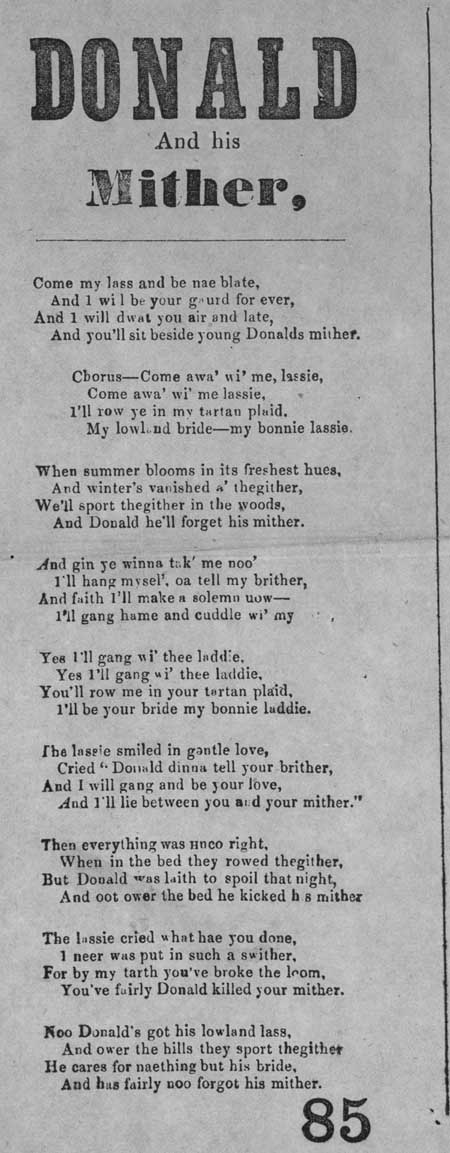Commentary
Verse 1: 'Come my lass and be nae blate, / And I will be your guard for ever, / And I will dwat you air and late, / And you'll sit beside young Donald's mither.' Chorus: 'Come awa' wi' me, lassie, / Come awa' wi' me lassie, / I'll row ye in my tartan plaid. / My lowland bride - my bonnie lassie.' This ballad appears to be a grotesque parody of the type of romantic love songs that were commonly printed on broadsides. Various romantic conventions feature, including professions of undying love and imagery from nature. However, the twist in the tale is that the 'lowland lassie', who is the poem's romantic focus, is expected to share a bed with Donald and his mother. Donald resolves the situation by kicking his mother 'oot ower the bed' and almost killing her. It may be that the ballad was intended to be a satire on the 'romantic Highlander' that was a popular literary figure in the late-eighteenth and nineteenth centuries. Early ballads were dramatic or humorous narrative songs derived from folk culture that predated printing. Originally perpetuated by word of mouth, many ballads survive because they were recorded on broadsides. Musical notation was rarely printed, as tunes were usually established favourites. The term 'ballad' eventually applied more broadly to any kind of topical or popular verse.
View Transcription | Download PDF Facsimile
|
 |
Probable period of publication:
1860-1890 shelfmark: L.C.Fol.178.A.2(088)
 View larger image
View larger image
|


